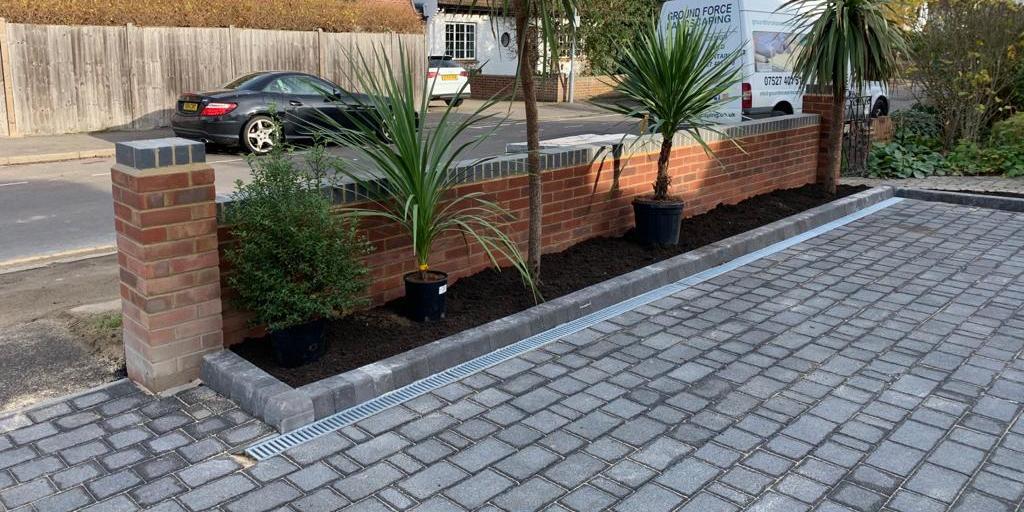What is the Best Driveway Material for Your Property?
Posted on 11th July 2023 at 10:23
Why finding the best driveway surface matters
The first step to creating a beautiful and inviting driveway is to determine the best surface material for your situation. Whether it's for your home, a new build or commercial property, or a pub, restaurant, or hotel, finding the right driveway surface material is essential in creating an attractive, long-lasting, and functional space.
It’s important to take into consideration cost, and how much maintenance your driveway may require. It would help if you also considered how durable it should be to withstand factors like extreme weather conditions, and the amount of wear and tear from cars driving back and forth every day. Also, consider what type of vehicles will be driven over it. Will it mainly be used by cars, or are lorries likely to be regularly driving on it?
Different types of driveway surface materials
When it comes to choosing the best driveway material for your property, there are many options available. From porcelain and block paving to gravel and crushed stone, there are a variety of materials that you can choose from depending on the type of property and your budget.
Each has its own benefits and drawbacks, so it’s important to consider all your options before making a decision. In this article, we’ll explore five of the most common driveway materials available in the UK and look at the pros and cons for each one.
Porcelain
Porcelain paving is becoming increasingly popular for driveways and other outdoor spaces due to its modern, attractive finish.
Porcelain has low water absorption, meaning that it's less likely to attract algae or become slippery in cold weather. Additionally, porcelain is resistant to moisture damage, meaning that it's highly durable and can withstand repeated exposure to wet weather conditions. This makes porcelain an ideal material for driveways and other outdoor spaces in areas with variable temperatures and precipitation levels.
Block Paving
Block paving is one of the most popular and cost-effective driveway surface materials in the UK. It is made up of individual blocks which means that it will need to be laid according to certain soil and slope conditions, as well as considering the amount of local rainfall. Consulting a professional drive specialist should always be done before starting any project to ensure you get the correct design for your needs.
In addition to its practical uses, block paving can also make an aesthetically pleasing addition to any home. With plenty of patterns available to choose from, you are sure to find something that suits your personal style. This makes it perfect for those wanting a welcoming drive that stands out from the crowd without compromising on cost or quality.
Gravel
Gravel drives are the choice of many homeowners due to their affordability and the fact that they can bring a certain rustic charm to any property. With its crunchy sound underfoot, gravel drives can evoke images of grand estates in the countryside. However, there are some disadvantages when it comes to upkeep and maintenance.
Loose gravel is vulnerable to movement as it's not bonded together like concrete or paved surfaces; this means that you will end up losing a fair amount over time as it gets swept away by wind, water, and heavy traffic. Weeds love this type of surface too, so they will often find their way into your driveway if you’re not careful with regular maintenance. In addition, any snowfall can easily be shifted around the drive which could cause further damage - making the process of clearing a path much harder than it would be on other types of driveways.
Grass Paving
Grass paving offers an attractive and eco-friendly alternative to traditional driveways. Its growing popularity reflects the increasing need for environmentally responsible solutions, as it helps to reduce flood risks, discourage water pollution, and take pressure off intensively harvested natural resources such as bitumen and concrete. With proper maintenance, grass paving can add a fantastic look to any home, however, this doesn’t come without some hard work. The upkeep of a grass paving surface requires vigilance as weeds are almost certain to pop up over time without regular tending to the area.
When compared with longer-lasting surfaces such as asphalt or concrete, which come at lower upfront costs, grass paving is considerably more expensive and not guaranteed to last as long. Despite this, grass paved driveways are a great choice for those with the financial means who want beautiful outside areas that fit in naturally with both their landscaping and their views on sustainability. All in all, grass paving is an attractive option worth considering, offering impressive aesthetics and low environmental impact alike.
Natural Stone
Natural stone is a popular choice for driveways for its aesthetic properties and durability. In any lighting condition, natural stone provides a unique, visually appealing look with its colour changes. It is also fairly low-maintenance due to its great resistance to frost, making it an ideal choice in areas of the UK prone to extreme weather conditions.
Summary
So, there you have it; the five most common types of material for driveways in the UK. Ultimately, it’s important to do your research before investing in any type of driveway material so you can make an informed decision that meets all your needs.

Ground Force Landscaping are based in Windsor and work throughout the local area.
VIEW OUR SOFT & HARD GARDEN LANDSCAPING SERVICES
Tagged as: Driveways
Share this post:

